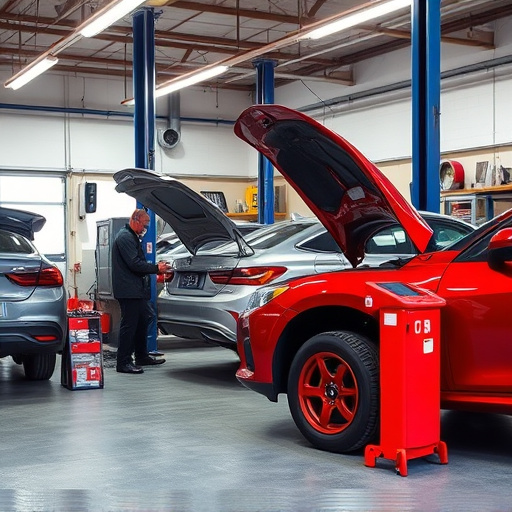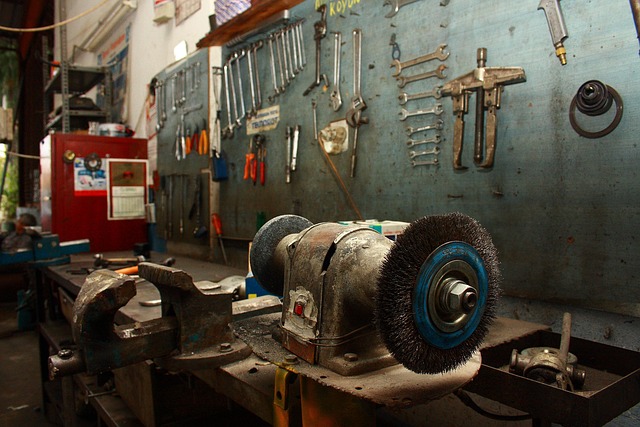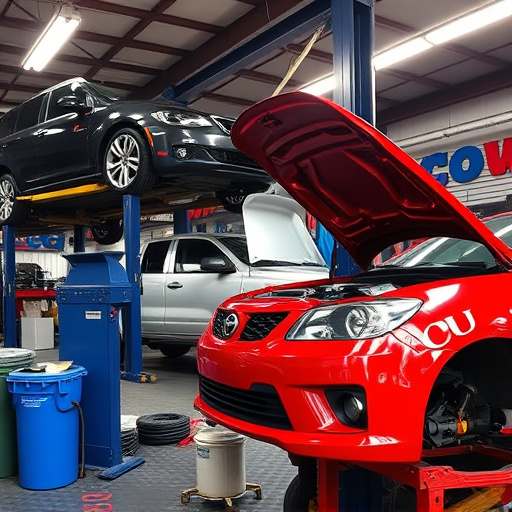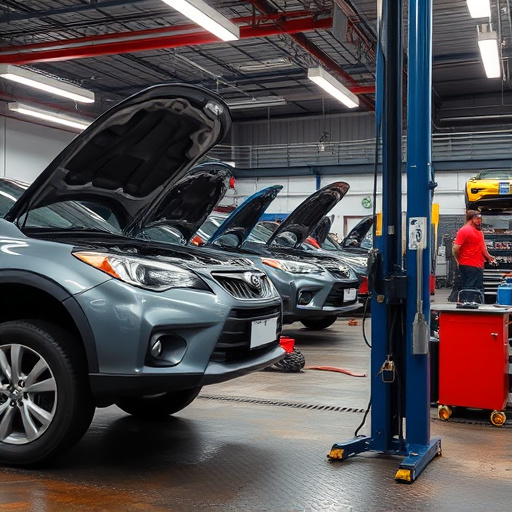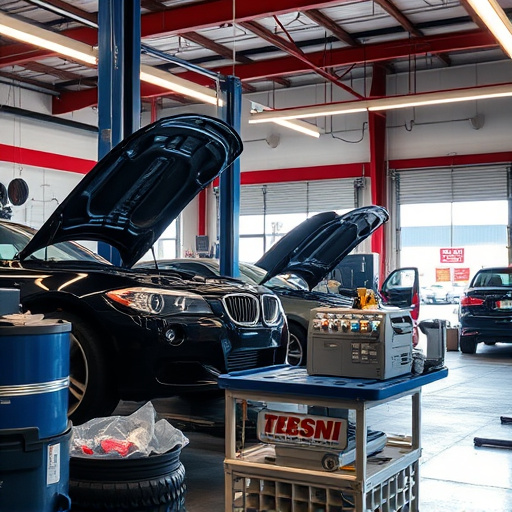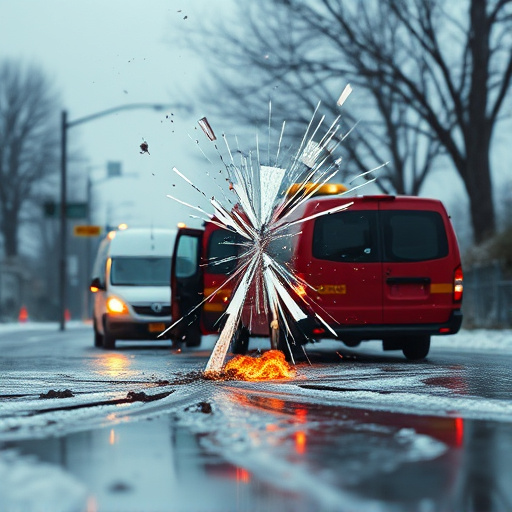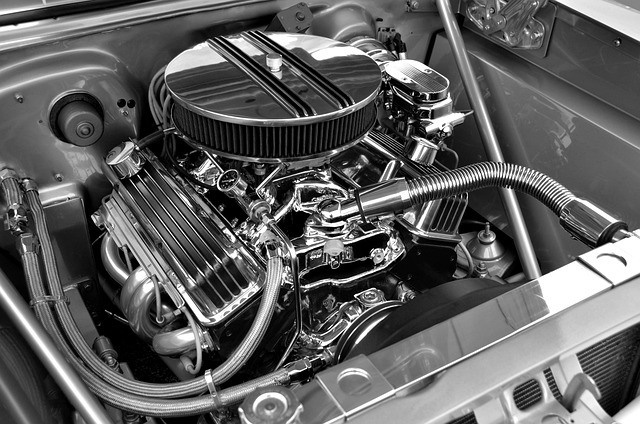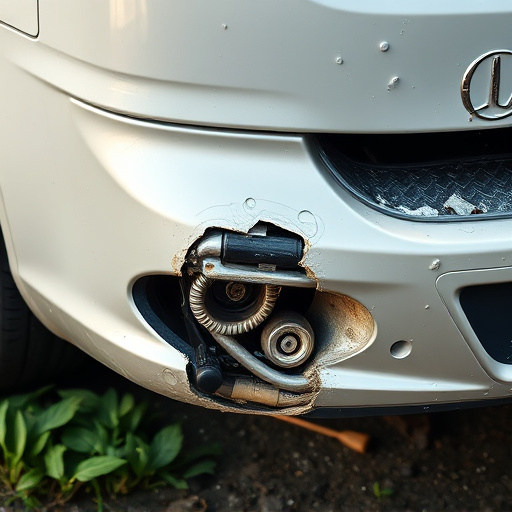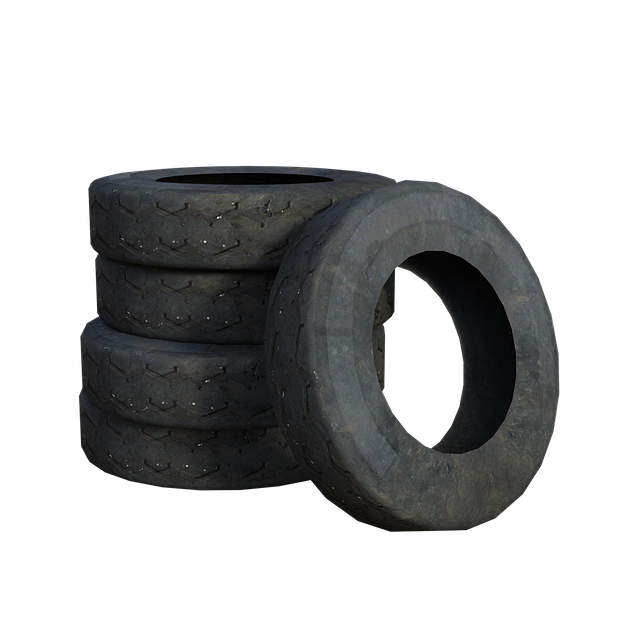In the competitive automotive services market, efficient weekend collision repair is crucial for customer satisfaction and environmental sustainability. Specialized centers cater to diverse vehicles, including luxury cars, while adhering to strict eco-friendly practices, particularly in car paint repair. They must comply with regulations on waste management, spill response, and emissions control. Strategic operations, digital tools, and remote assessment enhance service quality and efficiency, ensuring prompt collision repairs without compromising safety or environmental responsibility.
In today’s fast-paced world, efficient weekend collision repair services are in high demand. Understanding the unique dynamics of weekend operations is crucial for both businesses and regulatory bodies alike. This article delves into the intricacies of managing collision repairs during off-weekend hours while navigating stringent environmental compliance standards. By exploring effective strategies, auto repair shops can streamline processes, minimize impact, and provide quality service, ensuring customer satisfaction and regulatory adherence in the competitive weekend collision repair landscape.
- Understanding Weekend Collision Repair Operations
- Environmental Regulations for Auto Repair Shops
- Compliance Strategies for Efficient Weekend Repairs
Understanding Weekend Collision Repair Operations
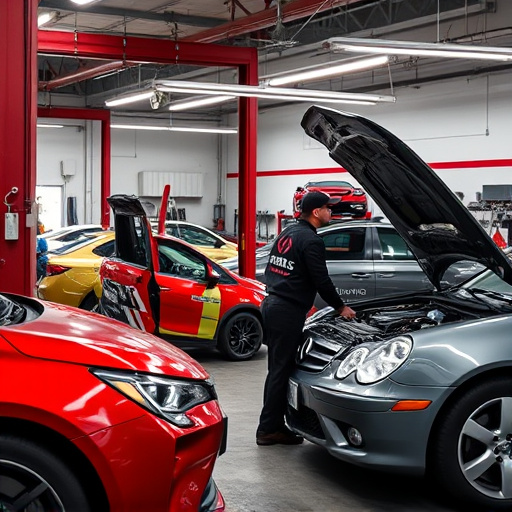
In the dynamic landscape of automotive services, understanding weekend collision repair operations is crucial for both businesses and consumers. Weekend collision repair centers play a vital role in ensuring that vehicles are restored to their pre-accident condition promptly. These facilities often cater to diverse vehicle types, including luxury vehicles needing meticulous care, such as car paint repair and auto body repair services.
The unique aspect of weekend operations lies in their ability to balance efficiency with environmental compliance standards. With many customers relying on their vehicles for daily commutes, these repair shops must navigate a labyrinthine process, ensuring not just quality repairs but also adherence to strict environmental regulations. This involves using eco-friendly materials and techniques, especially when handling car paint, to minimize the ecological footprint while delivering top-notch luxury vehicle repair services.
Environmental Regulations for Auto Repair Shops
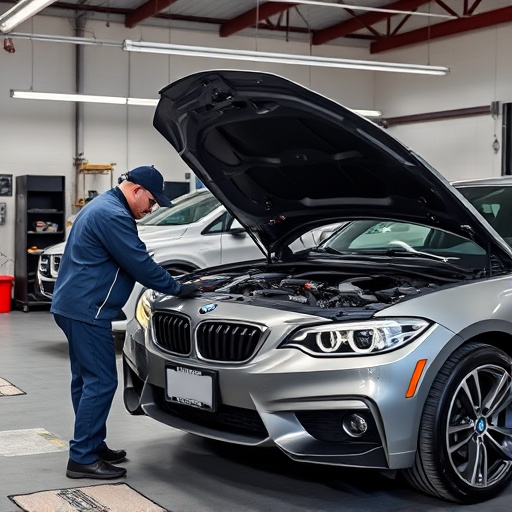
Auto repair shops, including those offering weekend collision repair services, are subject to various environmental regulations designed to protect local ecosystems and water sources from hazardous substances often found in automotive fluids and debris. These regulations govern the handling, storage, and disposal of materials like oil, coolants, solvents, and even paint products.
For instance, shops performing bumper repair or other automotive collision repair work must adhere to strict standards for managing used auto parts, ensuring proper containment and recycling of materials wherever possible. This includes implementing effective spill response plans and employing technologies that minimize the release of harmful emissions during repairs. Finding a reputable auto repair near me that prioritizes environmental compliance can contribute to a cleaner, more sustainable future while ensuring your vehicle receives the best weekend collision repair services.
Compliance Strategies for Efficient Weekend Repairs
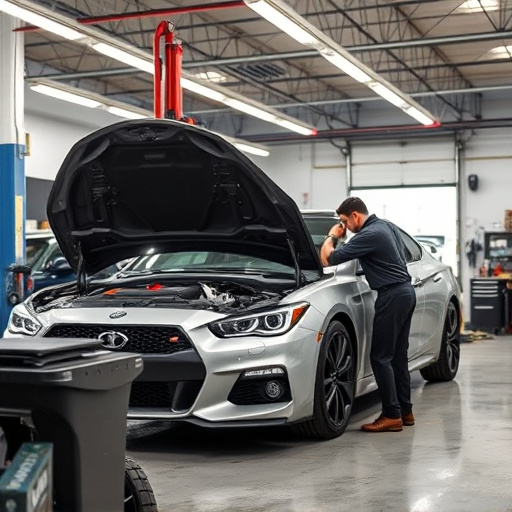
In the realm of weekend collision repair, efficient operations are key to meeting demands while balancing environmental compliance. To streamline processes, collision centers can implement strategic practices tailored for non-business hours. One such strategy involves prioritizing tasks based on urgency and complexity, ensuring that critical repairs are addressed first. This approach allows technicians to focus on high-impact jobs during weekends, minimizing downtime for clients.
Additionally, leveraging digital tools for remote assessment and communication can significantly enhance weekend collision repair services. These technologies enable efficient information exchange between customers and repair teams, facilitating faster decision-making. As a result, common issues like hail damage repair or routine automotive body work can be effectively managed, contributing to customer satisfaction while adhering to environmental compliance standards.
In conclusion, effectively managing weekend collision repair operations requires a deep understanding of both industry best practices and environmental compliance standards. By adhering to these regulations and implementing strategic approaches, auto repair shops can streamline their processes, minimize environmental impact, and deliver high-quality services during off-peak hours. Optimizing these aspects is key to staying competitive in the ever-evolving automotive sector, ensuring both efficient repairs and ecological responsibility.
